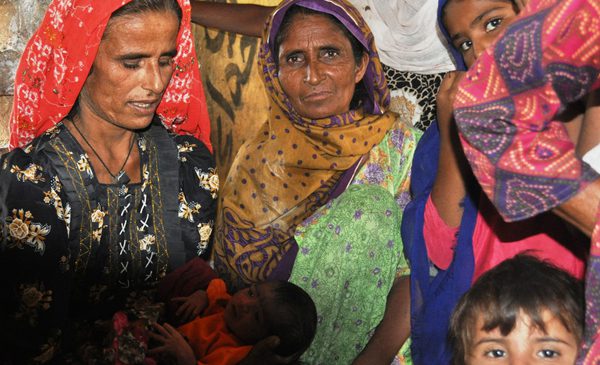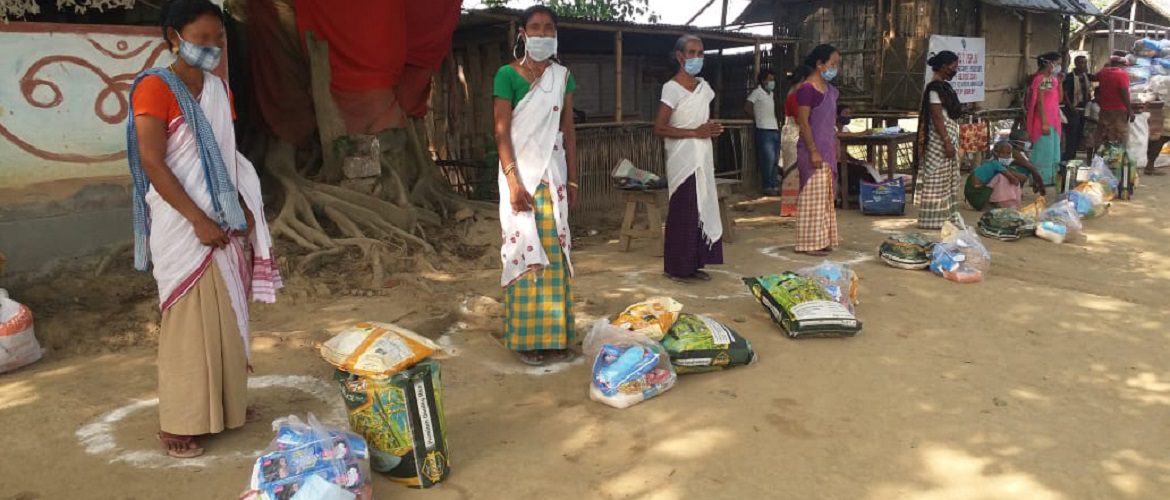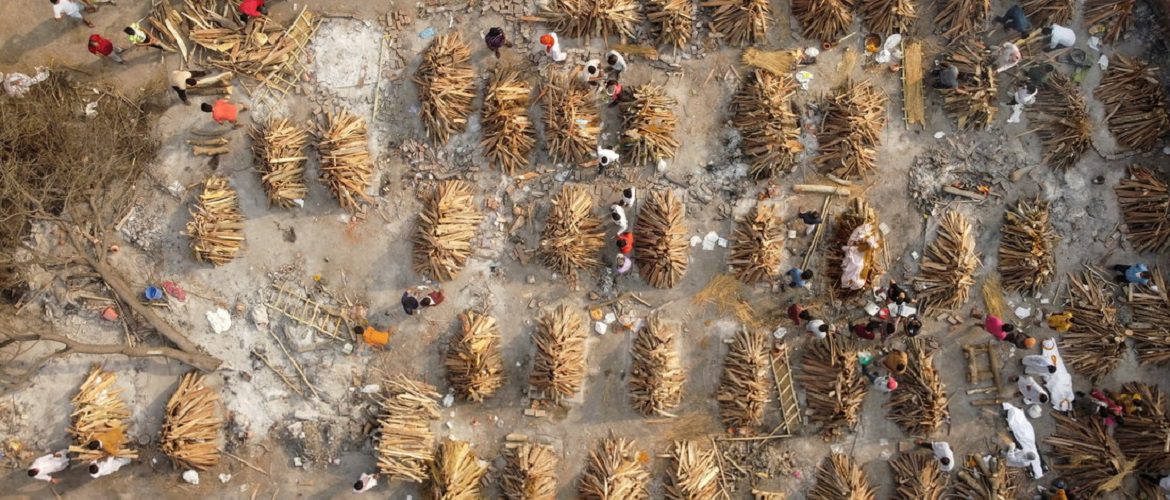By Oxfam Media Officer Tariq Malik
Rain discriminates against no-one – not even a child as young as four days!
While witnessing the ravages of rain in the southern Sindh, I stopped at a road-side relief camp in the Nandu area of Badin district. A middle-aged man who appeared to be a flood affectee beckoned me to come and meet a family that had taken shelter in a brick shed. The shed is actually meant for passengers travelling along the road to use for rest. There was a curtain; a patchwork of nylon on the door, and inside a woman was sat hunched on the floor baking bread. I was soon to find out that her name was Lal Khatoon, who on seeing me approach immediately got up and allowed me in.
It was a small room, eight square feet, that housed four families – comprising around 30 people. Men, women and children all huddled up around me, probably in the hope of a hand out. Suddenly I caught a glimpse of a little baby that Lal Khatoon was holding in the crook of her arm.
Lal Khatoon comes from Single Chak, Shadi Lal in Badin District – the first and most badly affected district in the recent rains. She looks older than her years. Though she does not exactly know the year of her birth, she is told by other women around her, “she is under thirty.” She gave birth to her seventh child during the current rains. She already had three sons and as many daughters. She was lucky not to have faced any complications during childbirth, as there was no trained health worker present at the time of her delivery.
But immediately after her child was born she was faced with another challenge.
Her baby girl was four days old when the roof of her one-room house gave in to incessant rains. Her district, Badin, is reported to have witnessed continuous rains from the second week of August. During these rains, breaches in the drain have inundated Badin with water. Lal Khatoon had to leave on foot and without any belongings – not that she had any to take with her as it had all been soaked by the floods.
She and her husband work as sharecroppers on a local landlord’s land. After working on the land for a year, her family gets to keep 25% of the total crop – which is barely enough to sustain them. There is no excess once she’s seen to the needs of her family, and so Lal Khatoon has no savings.
She and her other clan members walked for miles carrying her newborn baby Abida (”worshiper [of God]“) and three younger children. She and her cousin took it in turns to carry Abida. After trudging for hours, a military vehicle picked them up and took them to a government camp in Union Council Nando.
When I asked who named her baby, she said “her father; we don’t have a tradition of women naming their kids. It’s the men’s domain.”
She suffers a lot of problems in the passengers’ shed she lives in by the roadside. But in some ways her family is fortunate as many others don’t have this facility at all. The compound of an adjacent camp set up in a school building looks like a pond and people have great difficulty moving around and using the toilets. The site is inundated with mosquitoes, which further increases the difficulties.
Khatoon says “I am not feeling well after days of struggle at home to save my children and livestock; now the mosquitoes and lack of water and food has drained me of all the energy I need to face homelessness in such terrible weather.” Her child, who silently stared at the ceiling all this while, starts whimpering for a feed. She tries covering her child under her skimpy perforated shawl so that she can feed her, but isn’t able to because there were many males around. Abida seemed not to insist and Khatoon drops the idea of feeding her in full public view.
Khatoon gets a 10kg bag of flour from the Government, which she is told will be delivered every ten days. This is the maximum amount they have at any one time. “We manage by skipping meals and by eating a quarter or sometimes, if we’re lucky, a half a piece of bread.” During the rains they went without food for ten days as the stock they had only lasted for a week.
I asked her whether she will tell Abida when she is older about the troubles she is going through now. Instead of replying to this, she thinks of the water buffalo that she shared with another family. “Like me, it had a baby but it died in heavy rains because of the lack of shelter.”
Her constant fear is, how will she manage to care for her child who is already sick with skin rashes and diarrhoea? How will she build back her house? The land is underwater and it will take at least six months for it to be cultivable again. “We would probably starve to death or die of cold.”
I could offer no solace. When asked to be pictured with Abida, she agreed with a broad smile on her face. She wrapped Abida into a small shawl and then wished us goodbye.
Her eyes were glittering with hope this interview might cause some help to come to her soon. The question is: will it?



